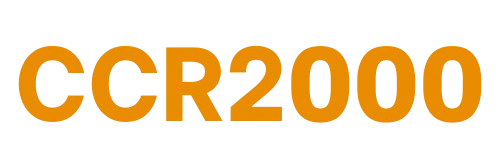While being able to access credit in your time of need is vital, the situation can get out of hand if you are unable to manage and repay your debt. The FCA’s Financial Lives Survey states that almost 12.8 million UK adults struggle with debt management and expense payments, with 77% of them finding it hard to keep up with the soaring burden.
Debt management plans (DMP) present a structured way out of this predicament, enabling you to regain control of your finances. They involve working out an arrangement with your creditors, entailing lower interest rates and monthly payments to eventually clear your debts.
This article explains what a DMP is, how it works, and whether it is the right approach for you.
What is a DMP?
A debt management plan is an informal contract between a debtor (you) and their creditors to pay down their debt. It mostly involves consolidating all monthly credit payments into a single, lower monthly payout so that the debtor can continue to meet monthly expenses and still service debt obligations. Usually, you can either arrange a DMP on your own or pay a licensed debt management company to put together one for you.
However, only unsecured debts, meaning debts not secured against your property, are covered under the plan. So, mortgages, court-litigated debt settlements, council taxes, VAT arrears, and household bills fall outside the DMP’s ambit. Generally, your DMP will include the following:
- Bank overdrafts
- Personal loans (except hire purchase agreements)
- Credit card and catalogue debt
- Other non-priority debt, like store cards
How does a DMP work? | Process
As the financial conditions and credit terms are unique to every individual, they require a debt management plan tailored to their circumstances. It involves the following steps:
Step 1: Contact an FCA-authorised debt management company or debt charity to take stock of your current financial situation.
Step 2: Render details of your assets, income, expenses, debts, and creditors so that your DMP provider can build your household budget that determines the money spare to repay debt after taking care of your living expenses.
Step 3: The DMP provider will negotiate with all your creditors to arrive at a debt repayment plan by possibly waiving off fees, lowering interest charges, and reducing monthly payments. However, not all creditors may get on board.
Step 4: Adhering to the budget, you will make a single monthly payment to the DMP provider, which will subsequently pay the creditors on a pro-rata basis. However, the company may deduct its own set-up and handling fees from the payout. The plan ends once you meet all your obligations.
Who are DMPs suitable for?
While DMPs present an excellent approach to settling your debt, they work only when:
- You still have sufficient disposable income after accounting for daily necessities, including food and utilities, to pay for the plan.
- Your money troubles are short-lived, and you will be able to clear your loans after a few months.
- Your unsecured debts total at least $2,000, and you earn a steady income to pay for them with a DMP.
Is it worth doing a debt management plan?
Despite meeting the suitability criteria, you might want to consider a few things, particularly the benefits and pitfalls of initiating a DMP. They are listed as follows:
What are the benefits of debt management services and payment plans?
- You only pay a single, readily affordable monthly payment toward your debts. It is even cheaper if you get a debt charity or a no-fee settlement company to create a plan for you.
- You gain from lower interest charges, fee waivers, and county court judgement suspensions if creditors explicitly agree to them.
- You can cancel your DMP plan at your convenience, as it is not legally binding.
- You can ask the DMP provider to rework your plan when your financial situation changes.
What are the negatives of a debt management plan and debt managers?
- There is no debt relief in a DMP, and lower monthly payments will increase the time it takes you to finally settle all your obligations.
- Some creditors may not join the plan and may pass your case to a debt collection agency or initiate litigation.
- Your monthly payouts will be even lower if you access services from a fee-seeking DMP provider, further raising settlement duration.
- The DMP will affect your credit ratings and will reflect on your record, making availing of credit in the foreseeable future arduous.
How long does a debt management plan last?
The length of a DMP is determined based on your outstanding debt and the monthly instalment that you can readily pay back. However, most of the debt management plans conclude in under five years.
How will a debt management plan affect me?
In addition to reshaping your current finances, a debt management plan can influence your credit rating and history. There are instances of creditors demanding that the DMP be added to your credit file, affecting your chances of acquiring new credit long after the plan has ended.
Moreover, as you pay lower amounts compared to the ordained amounts pre-DMP, your credit ratings are adversely affected. However, if you make full contractual payments, then DMP will not show up in your credit file.
Does debt management affect your credit score?
While a notation of DMP on your credit file does not directly affect your credit scores, they are affected if you are paying less than the contractual amount—as is usually the case with a DMP. However, sticking to the plan helps showcase that you value making good on all your debts rather than incurring bad debts, which is tremendous for your credit scores.
How long does a DMP stay on the credit file?
Your credit file will record your DMP when it was initially set up and continue to display it for six years, regardless of whether the debt was ultimately cleared or not.
What is a debt management program?
A debt management plan is also known as a debt management program. It refers to the informal arrangements negotiated by a debt settlement company with a debtor’s creditors to make repayments easier and more reasonable.
What happens if I stop paying my debt management plan?
As you are not legally bound to follow the DMP through, you can cancel it whenever it stops serving your purpose. But you will need to inform your DMP provider, who will further let your creditors know about the discontinuation of the plan.
Based on your contractual terms, your creditors may begin charging you higher interest and principal payments. Also, the provider may not refund your plan fee.
What is better, IVA or DMP?
Debtors are often confused between DMPs and IVAs (individual voluntary agreements) when deciding how to streamline their financial management. Unlike DMP, IVA is legally binding, meaning that if you fail to stick to it, creditors can petition for bankruptcy or approach an insolvency practitioner on your behalf.
However, it does entail writing off a certain portion of your debt and concluding in five years. In contrast, DMP is more flexible with payments but allows no debt write-off.
Can I get free debt management plans from debt management companies?
Yes, some debt management companies offer free debt management plans, especially non-profit organizations. These plans typically involve working with a counselor to assess your financial situation, develop a budget, and negotiate with creditors. However, it’s important to research and ensure the company is reputable, as some may advertise free services but have hidden fees. Always read the terms and conditions carefully before committing.
Can I get debt management help for free?
Yes, you can get free debt management help. Non-profit credit counseling agencies often offer free advice and guidance on managing debt effectively.
How to use a debt management plan calculator to estimate your monthly payments?
Some debt management companies do offer free debt management plans, particularly non-profit organizations. They assist in budgeting and negotiating with creditors. However, ensure the company is reputable and be aware of any potential hidden fees.
Key takeaways: Use Agicap’s debt management software for greater visibility and managing debt better
When faced with mounting bills and financial obligations, individuals often default on a debt management plan to pay off their debts and streamline financial management. While a DMP offers flexible terms and staggers the payment obligations, it involves no debt relief and adversely affects credit scores. So, to prevent debt mismanagement and defaults, it is better to deploy debt management software that unifies all your liabilities on a single platform, monitors repayments, and optimises cash flows.


